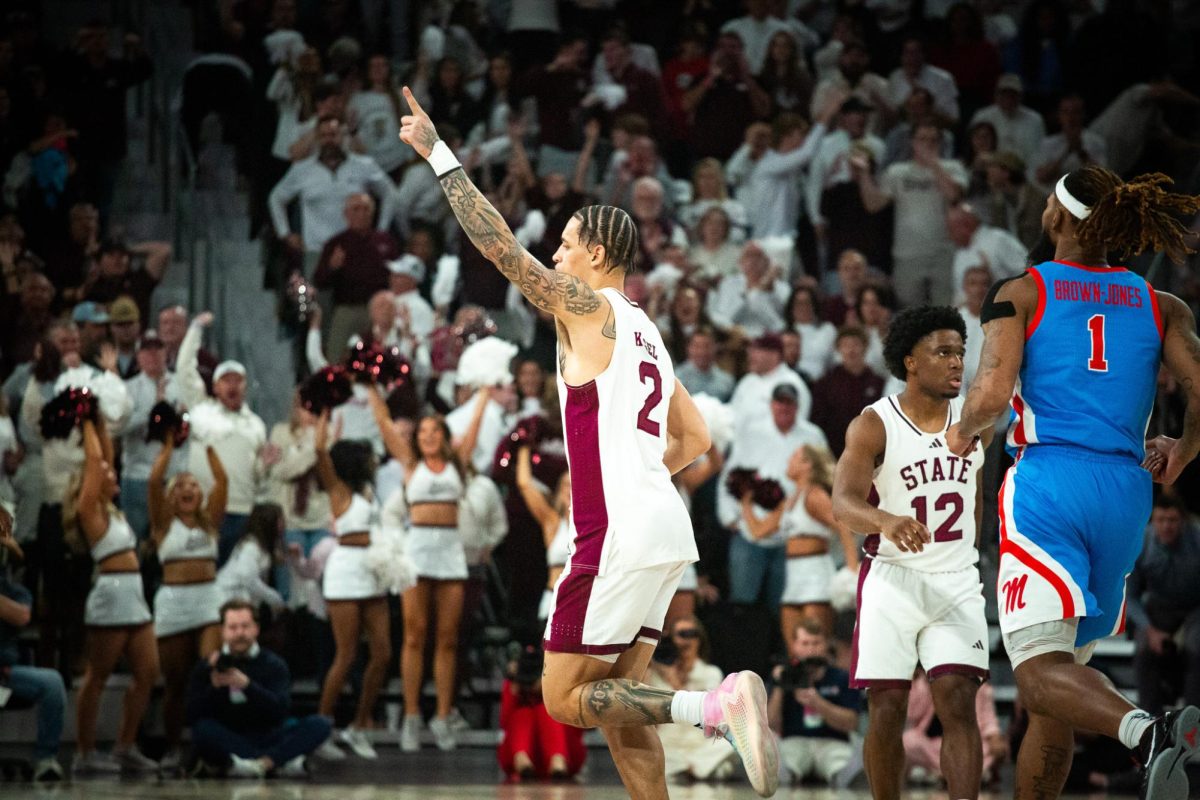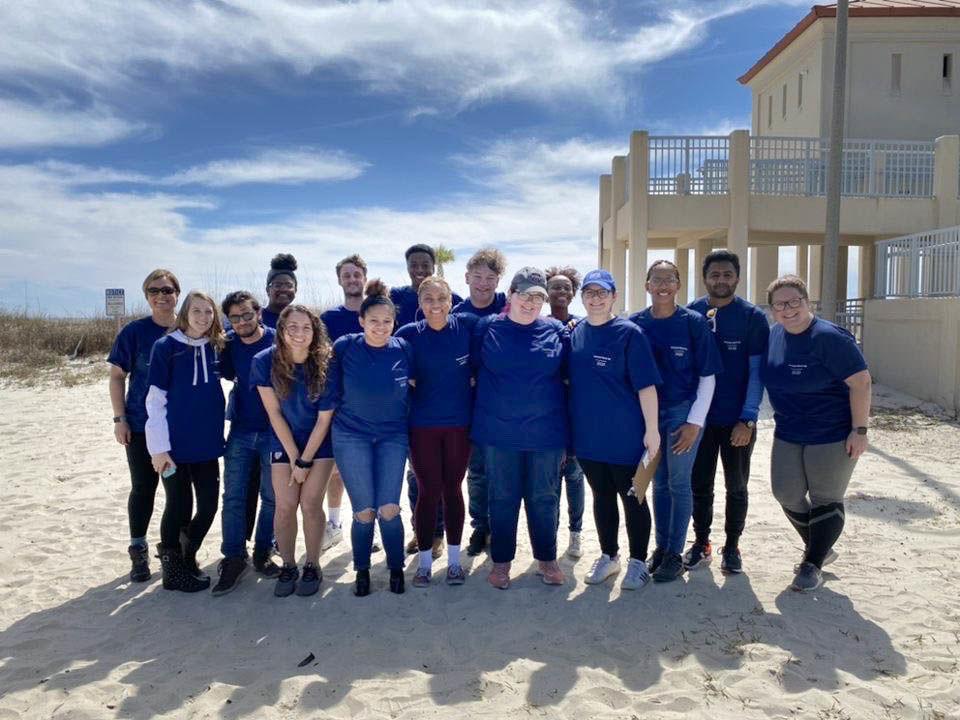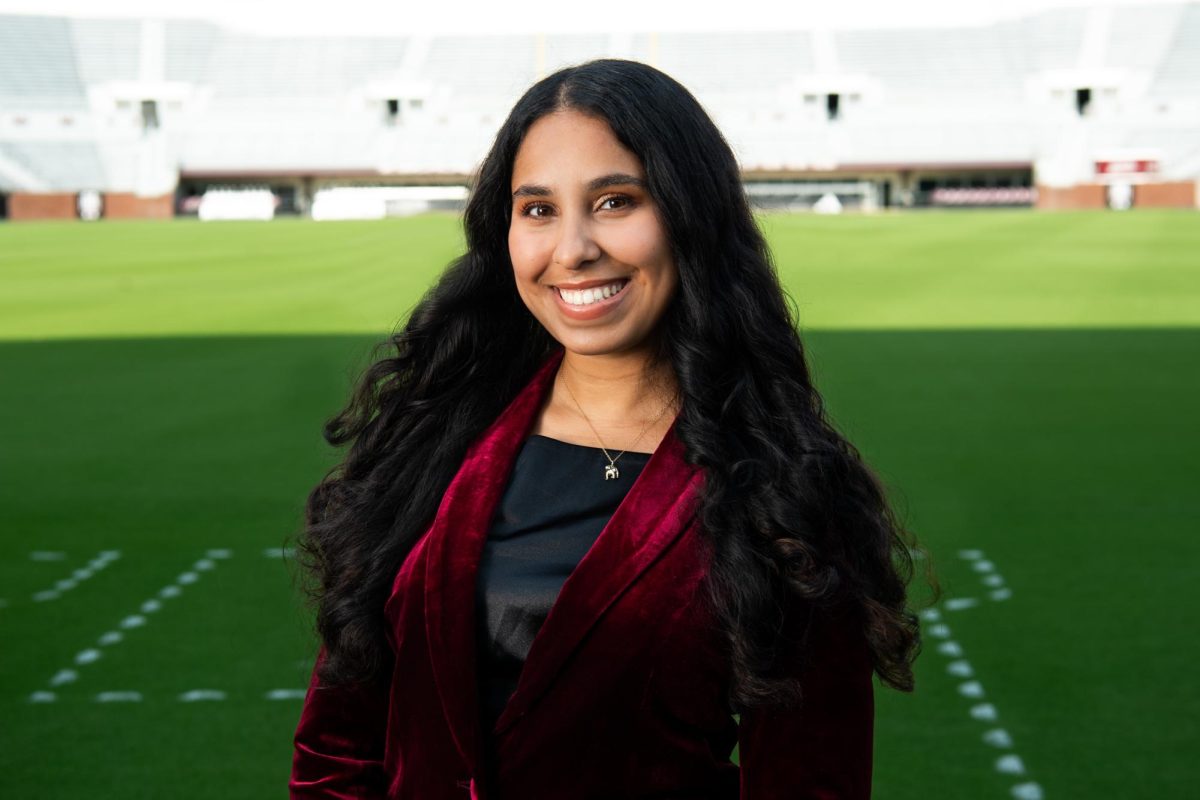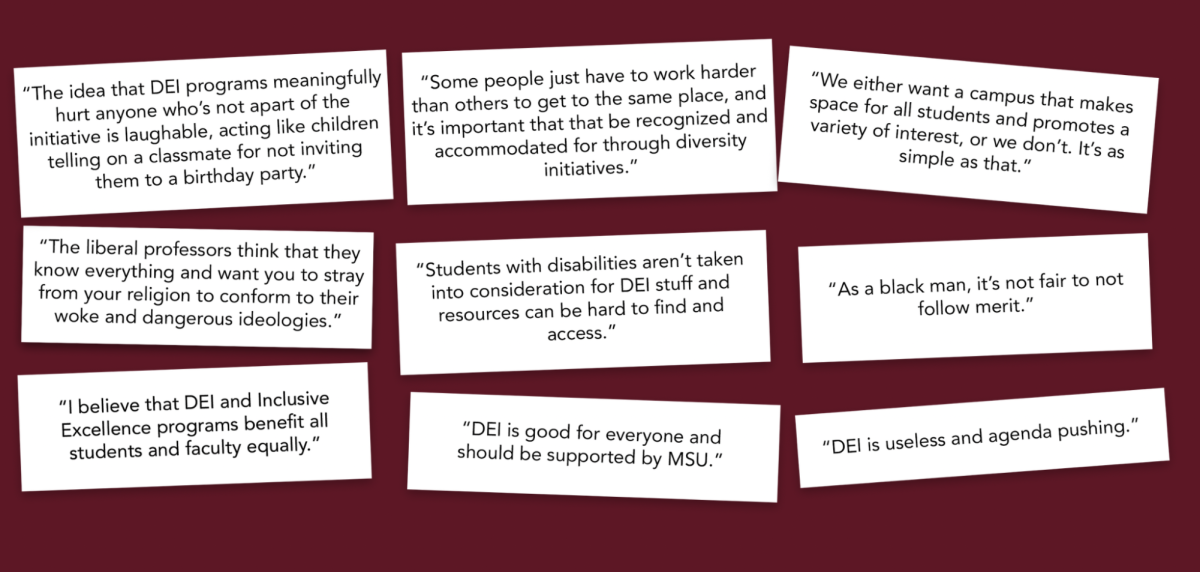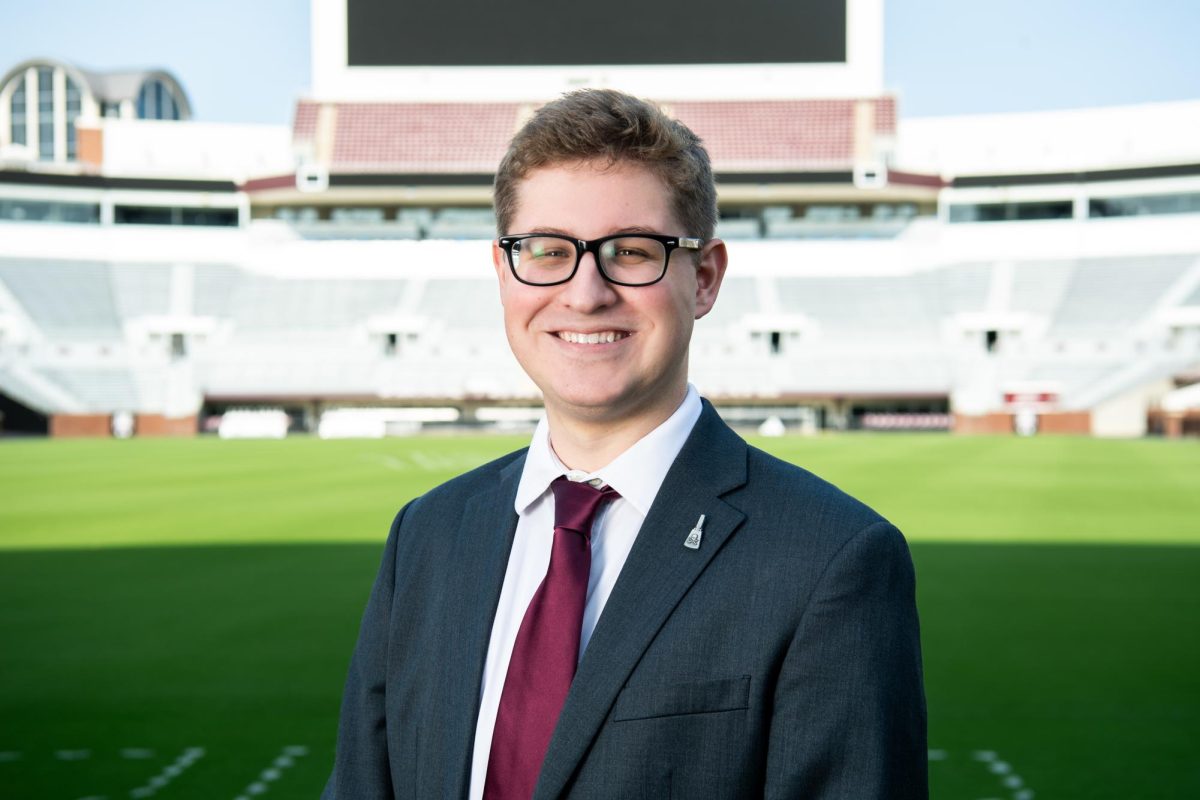Many college students spent their spring break traveling to another state and visiting popular destinations; however, 13 Mississippi State University students decided to spend March 7-8 of their spring break in Biloxi, Mississippi, participating in a coastal clean-up service trip that addressed how individuals can use social justice and service for conservation.
In partnership with MSU Coastal Research and Extension Center, students learned about environmentalism through activities such as picking up small items of trash on the Biloxi Beach, participating in a shrimp cruise and reflecting on how environmentalism impacts areas on a smaller scale.
Alexis Wallace, assistant director for Student Leadership and Community Engagement, said the alternative spring break trip allowed students to learn more about the Biloxi community and establish relationships with their peers.
“These trips represent a lot of community as well, so not only are you in community with the environment that you’re entering into but also you want to be in community with the people that you’re going on the trip with,” Wallace said.
For the coastal clean-up, students were equipped with work gloves, buckets and trash cans and split into two teams with each student recording how much trash was picked up. Trash that was collected included paper, cigarette butts and syringes.
According to Wallace, later in the day students participated in an activity called “root causes.” Participants were split into four teams to form a tree that represented an issue in environmentalism. Then, each participant would help form the roots of the tree that represented the causes of the issue. The branches and leaves of the tree represented solutions to that issue. In the space around the tree, participants would write out what they would do to combat this issue.
Students who went on this trip also participated in a shrimping trip in the waters of the Biloxi beach, where shrimp fishermen showed students the process of shrimping and the importance of marine life while students enjoyed the scenery of the Biloxi coast.
Wallace said these activities led students to find solutions to a problem and see that they can make small changes towards reducing an issue.
“We really want to get students to think about and come up with solutions to issues beyond just this trip and encouraging them to continue that effort once they’ve exited that trip,” Wallace said.
Majesty Henry, a junior majoring in communication with an emphasis in broadcasting and public relations, said she participated in the alternative spring break trip to give back.
“I just kind of wanted something to do, but I also like to give back to the world. So, I figured I could get a break and also feel like I’m doing something while doing that,” Henry said.
Henry said she benefitted from the trip by learning more about conversation issues and how they impact social justice issues.
“I went in thinking, ‘I’m just going to pick up trash off the beach and do my part,’ but, with the reflection piece, and then the exercises that we did throughout, not only did I think that I made friends and worked personally on myself, but I learned a lot also about things that I didn’t think I would learn about,” Henry said.
Wallace said students who formerly had no experience in conservation issues have found new ways to address these issues by honoring the life and history of the land and learning how these aspects intertwine with one another.
“I think that students have discovered ways that they can address (conservation) beyond recycling,” Wallace said. “Not only do they get those pieces of how to address conservation, but they also get those pieces around how do they see other social issues intersecting with this issue specifically.”
Although the alternative spring break trip is an opportunity for students to unwind while making a difference in their community, Wallace said not enough students are aware of the trip.
“I think the reason that students might not be aware of it is because in the past we were always designated to that one area in the Mississippi Delta,” Wallace said.
Jaycee Smith, a graduate assistant with the Maroon Volunteer Center, said she learned many things as a chaperone of the trip about environmentalism and aspects of Biloxi that changed her outlook on the Mississippi coast.
“I’ve never been to the Mississippi coast before, and so I didn’t know that all of those beaches were man-made, and I learned so much about the community of Biloxi, their economic status, as well as what they do to make a living and what makes that community prosper,” Smith said.
For Henry, the biggest takeaway she learned was how the smaller things in life can be used to make a bigger difference in the community around her.
“So, we learned what exactly can we do here to show people the importance of recycling and reducing waste, and it just kind of opened our eyes to realize that there are things that we can do at a smaller level that can make just as much change,” Henry said.
Spring break on the beach: students participate in coastal cleanup
0
Donate to The Reflector
Your donation will support the student journalists of Mississippi State University. Your contribution will allow us to purchase equipment and cover our annual website hosting costs.
More to Discover













































